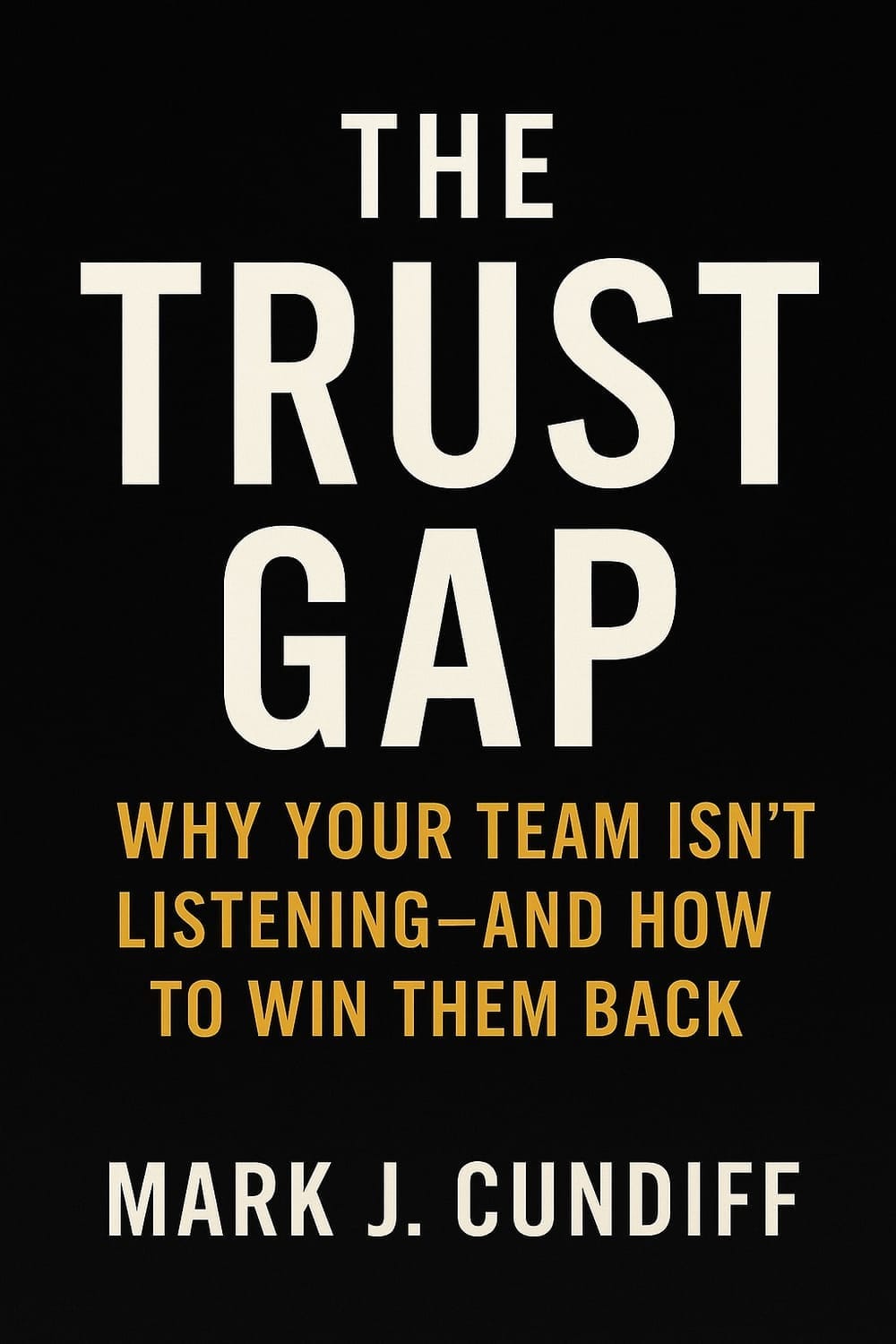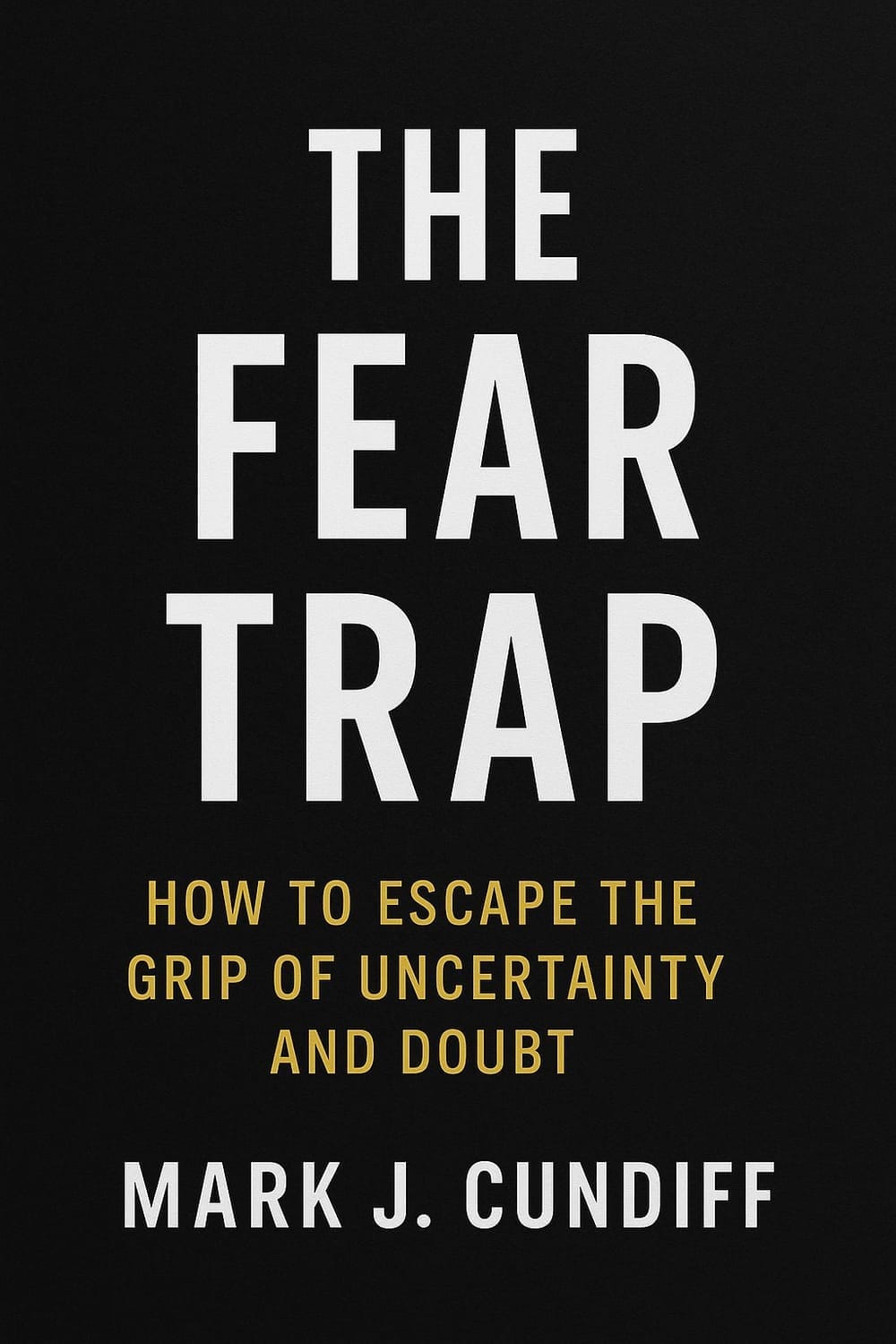From Good to Great: Why a Growth Mindset is Your Leadership Superpower
From Good to Great: Why a Growth Mindset is Your Leadership Superpower
A Tale of Three Leaders
Roger, Pete, and Ann started their leadership positions at the same company on the same day. All three were smart, skilled, and driven. They each brought strong credentials and experience to their new teams.
Six months in, Roger was struggling. When faced with a challenging new product launch, he doubled down on what had worked in his previous role.
"I'm a marketing specialist," he'd remind his team, "and this is how we've always done it." When the launch faltered, Roger blamed market conditions and the limited resources available.
Pete was holding steady. His department ran smoothly because he maintained tight control over processes and decisions.
When team members suggested innovations, he'd often say, "Let's stick with what we know works." His results were consistent, if not remarkable.
Ann, however, was thriving in unexpected ways. When her team encountered a significant issue with a client project, she brought everyone together. "I don't have all the answers," she admitted, "but I'm confident we can figure this out together."
She welcomed ideas from all team members. She explored new methods and contacted mentors for help. Their solution saved the project and created a new service line for the company.
By year three, the differences were stark. Roger moved to a new company. He is still looking for the "right fit" where others value his skills.
Pete maintained his reliable performance but had been passed over for promotion twice. Ann got promoted to senior leadership. Now, she mentors other managers in the organization.
What made the difference in these three professional journey paths? It wasn't talent, credentials, or even initial skill set. It was the mindset.
The Leadership Mindset Divide
In my years coaching and consulting executives, I've seen this pattern many times. Leaders who stay just "good" often have a fixed mindset. They think their skills are set traits that can't change much. Great people have a growth mindset. They see challenges as chances to grow. They believe effort leads to mastery.
Carol Dweck, a psychologist at Stanford, made this distinction in her book "Mindset: The New Psychology of Success" (2006). It may be the most important factor in your career as a leader.
Dweck's research shows that people who believe they can improve their skills through hard work and smart strategies tend to perform better. In contrast, those who see their talents as fixed abilities tend to perform worse.
In my article on "The Laws of Lifetime Growth" by Dan Sullivan and Catherine Nomura, I discussed the first key law: "Always make your future bigger than your past." Leaders with a clear vision of the future stay motivated. They face current challenges head-on.
A 2019 study in the Journal of Personality and Social Psychology found that companies with a growth mindset culture have 47% more employee trust. They also enjoy 34% greater commitment from their staff.
Why Your Mindset Matters More Than You Think
Leadership presents its challenges, particularly in managing people. Ron Williams, former CEO of Aetna, discusses this in his book, "Learning to Lead." He calls it "learning through the curve." Williams says great leaders embrace curves. They know that real growth happens there.
Research by the NeuroLeadership Institute supports this idea. It shows that when leaders face challenges with a growth mindset, they activate new neural pathways. This boosts both learning and performance.
This aligns with Sullivan and Nomura's third law of lifetime growth: "Always make your learning greater than your experience." In my summary, I said, "Turning experiences into learning moments helps you grow a lot."
Successful leaders don’t just gain experience; they learn valuable lessons from each one. The truth is, leadership isn't just about avoiding wrong turns or professional pitfalls. It's about how you respond when you inevitably face them.
The Growth Mindset Advantage
If you're new to leadership or ready for your next step, developing a growth mindset is essential:
Adapting to Uncertainty: Leaders with growth mindsets tend to handle change more effectively. This skill is vital in today’s business world. McKinsey & Company found that leaders focused on growth are 3.5 times better at managing industry disruptions.
Leadership Development: When you think people can grow, you invest more in their development. A 10-year study by Deloitte found that managers with growth mindsets spent 25% more time on team development. They also enjoyed 20% higher retention rates.
Resilience During Setbacks: You view failures as temporary lessons, rather than lasting judgments on yourself. The American Management Association reports that leaders with growth mindsets recover from setbacks 60% faster than those with fixed mindsets.
Continuous Improvement: You're never "done" learning, which keeps you relevant throughout evolving markets. Jim Collins, in "Good to Great", found that the best organizations had leaders who were always curious and dedicated to learning.
Higher Achievement Levels: By embracing challenges rather than avoiding them, you accomplish more over time. A Harvard Business School study followed 200 executives over a 15-year period. It found that those with growth mindsets were 34% more likely to reach their long-term goals.
This benefit aligns with what Sullivan and Nomura refer to as "making your contribution greater than your reward."
My analysis revealed that focusing on the value you create, rather than what you receive, paradoxically leads to greater rewards over time. Growth-minded leaders focus on contribution first, knowing that results will follow.
Practical Steps to Develop Your Growth Mindset
Looking for effective leadership tips and management solutions? Here are five practical steps to boost your growth mindset:
1. Embrace the Power of "Yet"
When facing a challenge, reframe "I can't do this" to "I can't do this yet." This simple linguistic shift opens the door to possibility and perseverance. Stanford researchers found that this language change increased problem-solving persistence by 40% in study participants.
2. Seek Feedback Proactively
Many leaders in my master class say they grew the most after asking for honest feedback. This was especially true when the feedback was hard to hear. A study from the Center for Creative Leadership found that asking for feedback predicts strong leadership over time.
This connects to Sullivan and Nomura's law: "Make your performance greater than your applause." As I noted in my summary, "The truly growth-oriented professional seeks honest feedback rather than empty praise". When you prioritize improvement over ego protection, you accelerate your development as a leader.
3. Study the Learning Patterns of Others
Study classic leadership books and biographies. They show how great leaders built their leadership skills. Their stories often reveal that excellence was cultivated, rather than being inherent. Angela Duckworth's 2016 study on "Grit" demonstrates that hard work, rather than talent alone, is a key factor in achieving success.
4. Celebrate Process, Not Just Outcomes
In the culture of your organization, recognize effort, strategy, and progress, not just final results. This reinforces the value of the growth journey itself. Google's Project Aristotle found that teams that celebrate learning did 23% better than those that only focus on results.
5. Adopt a "Learn-It-All" Rather Than "Know-It-All" Approach
Microsoft CEO Satya Nadella transformed the company's culture by prioritizing curiosity over certainty. In "Hit Refresh" (2017), Nadella explains how this shift in thinking helped Microsoft bounce back. It boosted the company's market value from $300 billion to over $2 trillion.
This idea comes from Sullivan and Nomura: "always make your questions bigger than your answers." In my book summary, I wrote, "The quality of your questions determines the quality of your growth".
Leaders who remain curious outperform those who believe they already have all the answers.
The Impact Across the Leadership Spectrum
What fascinates me about the growth mindset is how it transforms every dimension of leadership.
Whether you're navigating a new career path, refining your leadership style, or driving organizational success, a growth orientation changes how you:
Approach challenges (as opportunities rather than threats)
Respond to criticism (as input rather than an attack)
React to others' success (as inspiration rather than competition)
View effort (as the path to mastery rather than fruitless labor)
A study in the Harvard Business Review by Dweck and colleagues (2014) found that employees in growth mindset organizations trusted their company 47% more than those in other organizations. They also showed 34% greater commitment than those in fixed-mindset organizations.
Sullivan and Nomura highlight that in their final law of lifetime growth, successful leaders "always make your gratitude greater than your success." I pointed out that "gratitude expands your awareness of opportunities for further growth".
This mindset creates a positive cycle. Gratitude helps us see new opportunities. These opportunities lead to growth. Then, we achieve more success to be thankful for.
Learning from the Broader Leadership Landscape
The experiences of America's most transformative leaders consistently demonstrate this principle. Leaders, from the military to nonprofits, who value learning tend to perform better than those with a fixed mindset.
General Stanley McChrystal's "Team of Teams" illustrates that effective military operations necessitate leaders who are adaptable, learn from their experiences, and continually evolve in complex situations.
A 2019 study by the Stanford Social Innovation Review showed that nonprofits led by growth-minded executives were twice as likely to meet or exceed their impact goals.
Research from the Harvard Business Review indicates that growth-minded leaders foster more innovative and collaborative organizations. These leaders help companies navigate market disruptions successfully.
The Choice Before You
As you continue your leadership development, remember that mindset isn't destiny—it's a choice. Every day offers a chance to choose growth over comfort, learning over knowing, and progress over perfection.
The journey from good to great isn't about avoiding mistakes but about how you respond to them. It's not about knowing all the answers but about asking better questions.
What step will you take today to cultivate your growth mindset? How might that shift transform not just your leadership, but the impact you have on everyone you lead?
Your path from good to great starts with a key choice: Will you see leadership as a destination or as a journey of continuous growth?
The answer will determine not just your success, but your fulfillment throughout your leadership career.
In my look at "The Laws of Lifetime Growth," I saw that the biggest reward is becoming someone who creates more value for yourself and others." That's the ultimate promise of embracing a growth mindset as a leader: not just achieving more, but becoming more.
Mark Cundiff is a leadership coach and consultant. He helps growth-minded professionals improve their leadership skills. His focus is on practical, purpose-driven strategies. For more leadership insights and resources, visit www.markjcundiff.com.
Join over 3,900 Fellow Leaders reading The Learning To Lead Newsletter each week!
Recent Articles

Join over 4,000 Fellow Leaders reading The Learning To Lead Newsletter each week!
©2025 Learning To Lead | Helping Good Leaders Become Great Leaders


